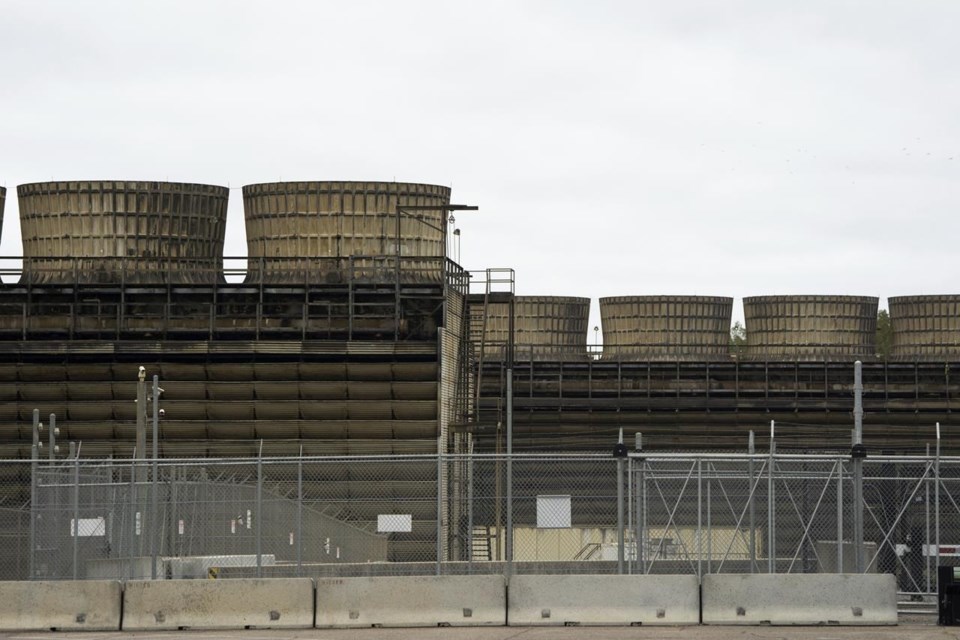MONTICELLO, Minn. (AP) — Water containing a radioactive material has leaked for a second time from a nuclear plant near Minneapolis and the plant will be shut down, but there is no danger to the public, the plant’s owner said Thursday.
A leak of what was believed to be hundreds of gallons of water containing tritium was discovered this week from a temporary fix at the Monticello Nuclear Generating Plant, where 400,000 gallons (1.5 million liters) of water with tritium leaked in November, Xcel Energy said in a statement Thursday.
The plant about 38 miles (61 kilometers) northwest of Minneapolis is scheduled to power down Friday so permanent repairs can begin, the company said.
There was a monthslong delay in announcing the initial leak that raised questions about public safety and transparency, but industry experts said there was never a public health threat.
The new leak, announced a day after Xcel Energy says it was discovered, was found to be coming from a temporary fix to the original leak, the company said in a statement. This time, the leak is anticipated to be in the hundreds of gallons.
“While the leak continues to pose no risk to the public or the environment, we determined the best course of action is to power down the plant and perform the permanent repairs immediately,” said Chris Clark, president of Xcel Energy–Minnesota, North Dakota and South Dakota. “We are continuing to work with and inform our state, federal, city and county leaders in the process.”
After the first leak was found in November, Xcel Energy made a short-term fix to capture water from a leaking pipe and reroute it back into the plant for re-use. The solution was designed to prevent new tritium from reaching the groundwater until installation of a replacement pipe during a regularly scheduled outage in mid-April, the company said.
However, monitoring equipment indicated Wednesday that a small amount of new water from the original leak had reached the groundwater. Operators discovered that, over the past two days, the temporary solution was no longer capturing all of the leaking water, Xcel Energy said.
The leaked water remains contained on-site and has not been detected in any local drinking water, Xcel Energy said.
Tritium is a radioactive isotope of hydrogen that occurs naturally in the environment and is a common by-product of nuclear plant operations. It emits a weak form of beta radiation that does not travel far and cannot penetrate human skin, according to the Nuclear Regulatory Commission.
The Minnesota Pollution Control Agency and Minnesota Department of Health released a statement Thursday saying they were told of the new leak Thursday afternoon and that it is ongoing. The agencies said they will continue to monitor groundwater samples and will inform the public if there is an imminent risk.
Minnesota regulars said last week that Xcel Energy voluntarily notified state agencies and reported the leak of tritium to the Nuclear Regulatory Commission soon after it was confirmed in November. The amount of leaked material never reached a threshold requiring public notification and they waited to make a public announcement until they had more information, officials said.
Edwin Lyman, director of nuclear power safety with the Union of Concerned Scientists, told The Associated Press last week that a significant health risk only would occur if people consumed fairly high amounts of tritium. That risk is contained if the plume stays on the company’s site, which Xcel Energy and Minnesota officials said is the case.
The Associated Press



